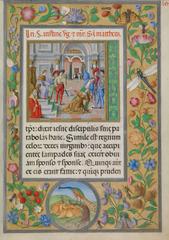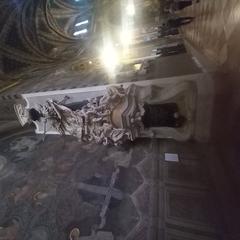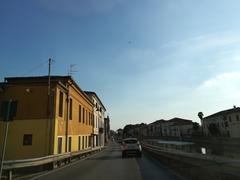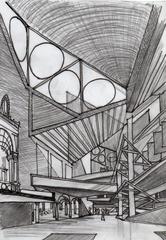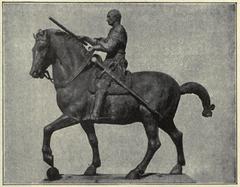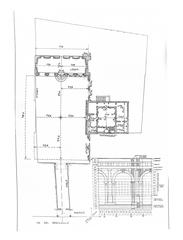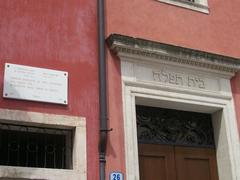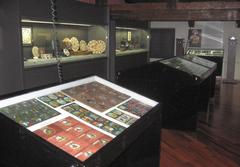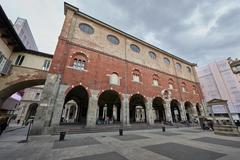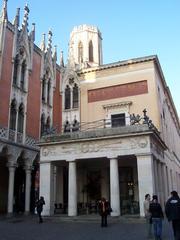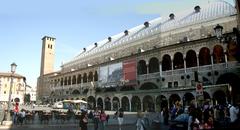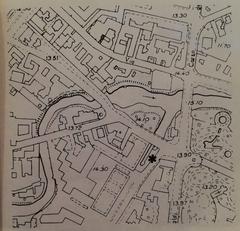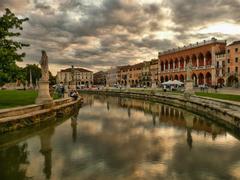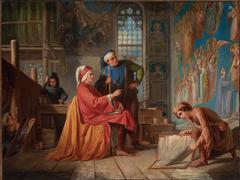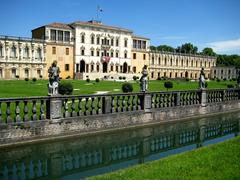Discover the Enchantment of Padua, Province of Padua, Italy
Journey Date: 14/08/2024
Welcome to Padua
Welcome to Padua, or Padova as the locals say, a city where history isn’t just learned but lived. Imagine strolling through ancient streets that have seen Roman chariots, medieval scholars, and renaissance artists. Founded by the mythical Trojan prince Antenor in 1183 B.C.E., Padua’s historical tapestry is rich and vibrant. It became a Roman municipium in 45 B.C.E., known for its fine horses and wool, and even the famed historian Livy was born nearby in 59 B.C.E. (Rossi Writes).
Fast forward to the Middle Ages, and Padua’s University, established in 1222, stands as a beacon of knowledge. Imagine Galileo Galilei and Copernicus wandering these very halls. Padua is not just a city; it’s a living museum of art and intellect. For art lovers, the Scrovegni Chapel with Giotto’s frescoes is a must-see, a revolution in wall painting that will transport you back to the 14th century (UNESCO).
But it’s not all about the past. Padua is a bustling modern marvel, blending its rich heritage with contemporary vibrancy. With one of Europe’s largest industrial zones and vital rail and highway connections, the city attracts over 40 million visitors annually. Whether you’re here for the history, the art, or just the sheer charm, Padua promises an unforgettable journey through time and beauty. Ready to unlock Padua’s secrets? Let’s dive in!
Your Adventure Map
- Discover the Timeless Magic of Padua, Italy
- Dive Into History
- An Artistic Haven
- A Pilgrimage of Faith
- A Hub of Knowledge
- Architectural Wonders
- A Modern Marvel
- Insider Tips
- Best Time to Visit
- Getting Around
- Must-See Attractions
- Culinary Delights
Discover the Timeless Magic of Padua, Italy
Dive Into History
Welcome to Padua, or Padova as the locals call it—a city where history whispers from every cobblestone and ancient walls seem to narrate tales of old. Founded by the mythical Trojan prince Antenor in 1183 B.C.E., Padua’s roots stretch back nearly 3,000 years. Imagine the Roman chariots racing down its streets when it became a Roman municipium in 45 B.C.E., known for its fine horses and wool. And if you love a good story, remember that Livy, the famed Roman historian, took his first breath in a nearby villa in 59 B.C.E.
Fast forward to the Middle Ages, and you’ll find the University of Padua, established in 1222, standing tall as a beacon of knowledge. Galileo Galilei once roamed its halls, and Copernicus pondered the stars here. During the Italian Wars of Independence and World War II, the city became a symbol of resilience against oppression.
An Artistic Haven
Art lovers, rejoice! Padua is a treasure trove of artistic wonders. The Scrovegni Chapel awaits you with Giotto’s frescoes—considered a revolution in wall painting. These masterpieces, along with works by Guariento di Arpo, Giusto de’ Menabuoi, and Altichiero da Zevio, will transport you to the vibrant 14th century. And let’s not forget Andrea Palladio, the architectural genius born here, whose 16th-century villas still enchant visitors.
A Pilgrimage of Faith
Padua is also a sanctuary for the soul. The Basilica di Sant’Antonio, one of the largest Catholic churches worldwide, houses the relics of Saint Anthony of Padua, drawing millions of pilgrims each year. The Orto Botanico di Padova, the world’s oldest academic botanical garden founded in 1545, stands as a UNESCO World Heritage Site, offering a peaceful retreat for contemplation.
A Hub of Knowledge
The University of Padua, an institution of learning since 1222, boasts alumni like Galileo, Copernicus, and Vesalius. This university has been at the forefront of scientific breakthroughs for centuries. Step into the historic Palazzo Bo and the serene Orto Botanico to feel the pulse of innovation.
Architectural Wonders
Padua’s skyline is a mosaic of architectural marvels. From the Palazzo della Ragione with its massive unsupported roof to the medieval walls and gates crafted by Venetians between 1507 and 1544, every stone tells a story. Stroll through Prato della Valle, one of Europe’s largest public squares, or explore the medieval charm of Piazza della Frutta and Piazza dei Signori.
A Modern Marvel
Today, Padua is a bustling hub of industry and communication in the Veneto region. With one of Europe’s largest industrial zones and vital rail and highway connections, the city blends its rich heritage with modern vibrancy. Attracting over 40 million visitors annually, Padua is a testament to timeless charm and contemporary allure.
Insider Tips
Best Time to Visit
Spring (April to June) and fall (September to October) are ideal for visiting Padua. Enjoy mild weather and fewer crowds, perfect for exploring this historic gem. Summers can be hot and humid, while winters are typically cold and damp.
Getting Around
Navigating Padua is a breeze with its efficient trams and buses. The city’s compact size makes it incredibly pedestrian-friendly, with many attractions within walking distance (Rossi Writes).
Must-See Attractions
- Scrovegni Chapel: Marvel at Giotto’s revolutionary frescoes (UNESCO).
- Basilica di Sant’Antonio: A spiritual pilgrimage site housing Saint Anthony’s relics (Venice Travel Tips).
- Prato della Valle: Stroll through one of Europe’s largest public squares (Wanderlog).
- University of Padua: Explore the historic Palazzo Bo and the tranquil Orto Botanico (New World Encyclopedia).
Culinary Delights
Savor Padua’s local cuisine with dishes like bigoli pasta, risotto with radicchio, and the famed tramezzini sandwiches. Visit the local markets, such as the Mercato, to sample cheeses, salamis, and fresh produce. The market spills outside into the piazza, where you can find stalls selling clothing, kitchen items, and more (Our Italian Journey).
Accommodation
Mid-Range Hotels
- B&B Casa Camilla: Located in a residential area, this charming B&B offers traditional décor, comfortable rooms, and modern amenities. Guests can enjoy a daily breakfast and bike rental services (Every Steph).
Budget Options
- Casa a Colori Padova: This budget-friendly option offers double, triple, and family rooms with private bathrooms and terraces or balconies. The property features a fitness center and a restaurant, serving Italian or Continental breakfast (Every Steph).
Guided Tours
For a deeper understanding of Padua’s history and culture, consider joining a guided tour. One popular option is the Padua: Private City Walking Tour & Scrovegni’s Chapel Visit, led by a certified guide. This tour covers the historic center, including the Cathedral, Erbe Square, and the Scrovegni Chapel (Every Steph).
Safety Tips
Padua is generally a safe city, but it’s always wise to take standard precautions. Keep an eye on your belongings, especially in crowded areas like markets and tourist attractions. Avoid walking alone late at night in unfamiliar areas (Every Steph).
Cultural Etiquette
When visiting religious sites like the Basilica of Saint Anthony, dress modestly and be respectful of local customs. It’s also a good idea to learn a few basic Italian phrases, as this can go a long way in enhancing your experience and interactions with locals (Sacred Wanderings).
Local Events
Padua hosts a variety of events throughout the year, from markets and fairs to concerts and religious festivals. Check local listings and tourism websites for up-to-date information on events happening during your visit (Padova).
Final Tips
- Currency: The local currency is the Euro (€). Credit cards are widely accepted, but it’s always good to have some cash on hand for small purchases.
- Language: Italian is the official language, but English is commonly spoken in tourist areas.
- Emergency Numbers: In case of emergency, dial 112 for general emergencies and 118 for medical emergencies.
Call to Action
Ready to unlock Padua’s secrets? Download Audiala and let our expert insights and hidden gems guide your adventure. Your perfect travel companion awaits!
Local Secrets and Hidden Gems
Don’t miss the hidden gem of Orto Botanico, the world’s oldest academic botanical garden, founded in 1545.
Interactive Elements
Challenge: Find the statue of Galileo in Prato della Valle and snap a selfie with this legendary scientist!
Sensory Descriptions
As you stroll through Prato della Valle, hear the gentle lapping of water from the surrounding canal, and smell the fresh blooms from the gardens.
Time-Based Itineraries
Choose your adventure: A Day of Art and History or A Day of Food and Fun.
Pop Culture References
If you’ve seen Shakespeare’s ‘The Taming of the Shrew,’ you’re already familiar with Padua’s dramatic flair!
Local Lingo Lessons
‘Grazie’ (GRAH-tsyeh) means ‘Thank you.’ Use it often – Paduans love polite visitors!
Myth Busting and Surprises
Think Padua is just a sleepy little town? Think again! It’s a buzzing hub of history and innovation.
Storytelling Elements
Legend has it that St. Anthony himself performed miracles right here in Padua!
FAQ
Q: What’s the best way to get around Padua?
A: Walking or biking – it’s a compact city with surprises at every corner!
Your Next Steps with Audiala
As our journey through Padua comes to an end, it’s clear that this city is a harmonious blend of past and present. From its ancient Roman roots to its medieval scholarly achievements and modern-day vibrancy, Padua stands as a testament to timeless charm and innovation. Whether you’re marveling at Giotto’s frescoes in the Scrovegni Chapel or wandering through the historic halls of the University of Padua, there’s a sense of awe that permeates every corner of this city.
But Padua is more than just its famous landmarks. It’s in the hidden gems like the Orto Botanico, the world’s oldest academic botanical garden, and the quiet corners of Prato della Valle, one of Europe’s largest public squares (Wanderlog). It’s in the local cuisine that tantalizes your taste buds and the friendly locals who make you feel at home.
Padua is a city that invites you to explore, to discover, and to be enchanted. As you plan your visit, remember that Audiala is your perfect travel companion, offering expertly crafted audio guides that reveal the city’s hidden stories and secrets. Download Audiala and let us guide you through the magic of Padua. Until then, arrivederci and happy travels!
Your Padua Library
- Rossi Writes. Visit Padua, Italy. https://rossiwrites.com/italy/padua/visit-padua-italy/
- UNESCO. Scrovegni Chapel. https://whc.unesco.org/en/list/1623/
- Wanderlog. Most Historic Buildings and Sites in Padua. https://wanderlog.com/list/geoCategory/837326/most-historic-buildings-and-sites-in-padua

